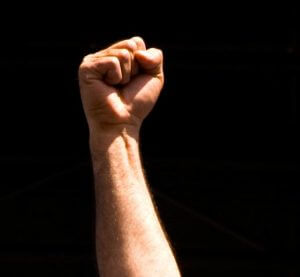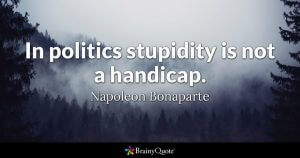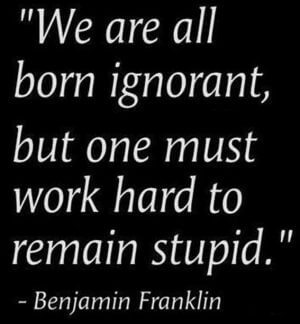 I thought I have written all I wanted to write today, but man plans, god laughs.
I thought I have written all I wanted to write today, but man plans, god laughs.
It’s Monday, time to read the Monday Morning Memo by Roy Williams… the highlight, often, of the week ahead.
Today especially, because what he is doing is echoing my own teaching: The main principle of Life is the Anna Karenina Principle: the principle of the strait and narrow…
Attention: I am trying to teach you how to see beyond the obvious, beyond the surface…
He is a radio advertising man, so his examples always come from Radio advertising… those are trees… Pay attention to the forest.
He talks about how to define yourself (and your company, if you have one.)
 In our rule based, plenty based world, the more you can say, they say, it’s the better… and that makes you plain vanilla, not committed, not distinguished, a nobody. Even you don’t know yourself.
In our rule based, plenty based world, the more you can say, they say, it’s the better… and that makes you plain vanilla, not committed, not distinguished, a nobody. Even you don’t know yourself.
You ask for coaching, but you have no idea to what end… and coaching that isn’t directed is like water than isn’t used… must makes things wet, but has no power.
So how do you best define yourself? Hint: not the way the countless articles tell you… but the way the Anna Karenina Principle tells you: by one thing you stand against.
Some 20 years ago I said: There is no way I am going to be anything less than magnificent… that was my way of defining myself. With the knowledge I possess today I would reword that, because magnificent doesn’t mean a damn thing… albeit less than magnificent awakens a million of ways of being that are all distasteful to me. Because it’s been guiding me for more than 20 years, on an ever narrowing path… the narrower the happier, the lighter I become. It is a process.
So what is it that you stand against being?
Read the memo… it will help you see how to do this… but please know: this is not something like your underwear you can change at will… If you are a waffler, or a Twitchy Little Bastard, you’ll want to do just that.
Then I recommend that you call that the enemy: the low TLB… it can take you to the sky.
How, Then, Should We Advertise?
The average person is afraid of criticism.
But the person who has no fear of criticism is more likely to succeed. This lack of fear is what keeps them from being average.The average business owner is afraid their ads will be criticized.
Do you want to kill a great ad? Show it to the people you trust.
In the words of my partner Mick Torbay,
“You need to understand something: the committee ((society, your family, public opinion, political correctness, the crab bucket)) is not evil. The committee doesn’t want you to fail. The committee has nothing but good intentions. But the committee can’t innovate. More than anything, the committee wants to look good to the rest of the committee. The committee is afraid of looking stupid… The committee can only spot problems, downsides, possible pitfalls… So don’t be surprised that when you present a really, really great idea to a committee, the only thing you’re gonna get is a reason why that idea won’t work, one reason for every member of the committee. The committee will always pull you to the center. The committee will help you avoid risk, but risk and reward are two sides of the same coin. If you avoid risk, then huge success is now out of the question. Are you okay with that?”
Most ads aren’t written to persuade; they’re written not to offend. ((Read between the lines! This is the teaching of most of your favorite gurus… not to offend. Even my favorite “guru” company, Landmark Education, has resorted to “not to offend” instead of being an insulting obnoxious penetrating stand against living a life of mediocrity))
But even a weak ad will cause your name to be the first that springs into the public mind if you give it enough repetition. This assumes, of course, that your competitors have equally bland ads.
And frankly, that’s a pretty safe bet.
But repetition costs money.
Do you want to differentiate yourself with memorable, attention-getting ads that will accelerate your repetition by unleashing the persuasive powers of wit, humor, identity, and audacity?
The first step is to find your corporate mission statement, take it outside into the sunlight, lift it high up into the sky, then lay it down on the sidewalk and set it on fire. When it is finished burning, sweep the powdery ashes into the grass. Paper ash is an excellent source of lime and potassium. This will raise the pH and help neutralize the acid in your soil.
You have now put your mission statement to the best possible use.
Just out of curiosity, why did you think you needed to write down all those generic things you believe in? Those things you included – the things you stand for – rarely differentiate you since most of us include, believe in, and stand for the same things: Individuality, Informality, Opportunity, Competition, Efficiency, Progress, and Helping Others.
It is what you exclude, or stand against, that defines you. To gain attention and win a following, you must stand against the omission of one of these seven things:
- Individuality: individual initiative, individual expression, independence and privacy
- Informality: equality, directness, and an open society
- Opportunity: ability to change yourself, your business, your country, and your world
- Competition: opportunity to win recognition, status, and material rewards
- Efficiency: reduce wasted time, effort, and resources
- Progress: social, economic, and physical mobility
- Helping Others: because we’re all in this together
You may have used different words, but those are the ideas contained in every mission statement, the ultimate expression of committee-think.
You don’t become famous by championing everything. You become famous by championing one thing.
The client who grew the most in 2018 stands against inefficiency. His company eliminates stress and frustration by responding instantly when customers call and then doing the job perfectly, making sure the customer’s time and money are never wasted. His local company grew by tens of millions of dollars last year. Most people love his ads but he still gets plenty of criticism.
A client whose volume jumped almost as high stands against formality. His frank, unvarnished style of communication makes customers trust his people and his company. His ads are beloved by most of the population but he still gets savaged in social media.
Does the client who stands against inefficiency also have ads that are frank, informal, and unvarnished? Of course he does, but it is his stand against wasting the customer’s time that sets his company apart.
Does the client who stands against formality also respond quickly and do the job right? Yes, but it is his stand against distance in the relationship between himself and the customer that makes his company special.
What is the principal enemy your organization fights against?
When I say “principal enemy,” I’m not talking about your competitors. I’m talking about that thing you try so very hard to eliminate for your customer.
What is it?
Roy H. Williams
OK, if you have a difficult time doing this exercise, then you may want to go to square one.
Integrating the selves: I teach that step in this article –> https://yourvibration.com/37750/not-able-to-sustain-transformation/
That is the hardest step of all… All quitters I have ever had in my programs tripped on that step. Why? Because it takes humility, and humility doesn’t jive well with your precious “I”.
I have seen students work their way through it, and raise their vibration instantly. And I have seen students who are not willing, and are stuck at the lowest level of vibration.
 It is a willingness issue: a willingness to step off the ledge of the abyss, trusting that the floor will meet your foot as you step on it. I have done it, others have done it, but faith, trust, doesn’t come easy.
It is a willingness issue: a willingness to step off the ledge of the abyss, trusting that the floor will meet your foot as you step on it. I have done it, others have done it, but faith, trust, doesn’t come easy.
The hardest time to give up is for people whose lowest is something that is socially not pretty… Being a taker, for example, is a trigger for many quitters. Being a bottomless pit demanding to be filled… accepting that that is who you are, is another one. Being slothful, stupid, AND boastful… hard to stomach, isn’t it?
Being a looter and a moocher, a second hander, to use Ayn Rand’s words… another hard thing to own up to.
The harder it is the more beauty, abundance, joy, peace comes with integrating the selves… Just ask the students who have done it…
By the way: your Silver Bullet verbalizes your lowest self… it is the self you don’t want to own up to.
Read the original article: How to define yourself and live by your definition of yourself?
